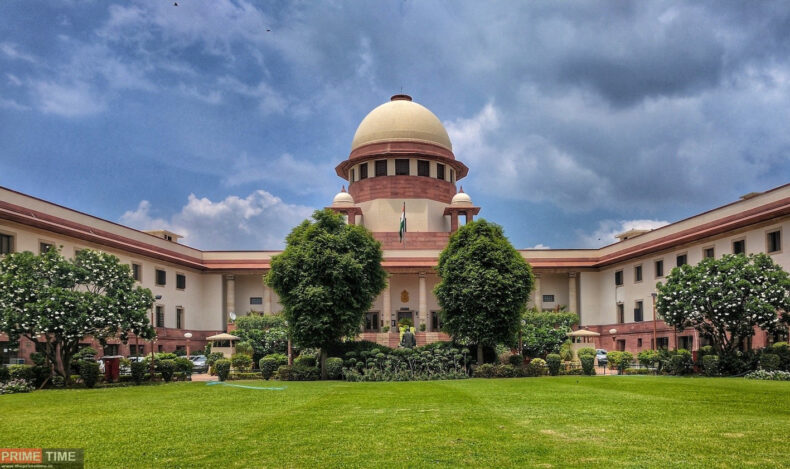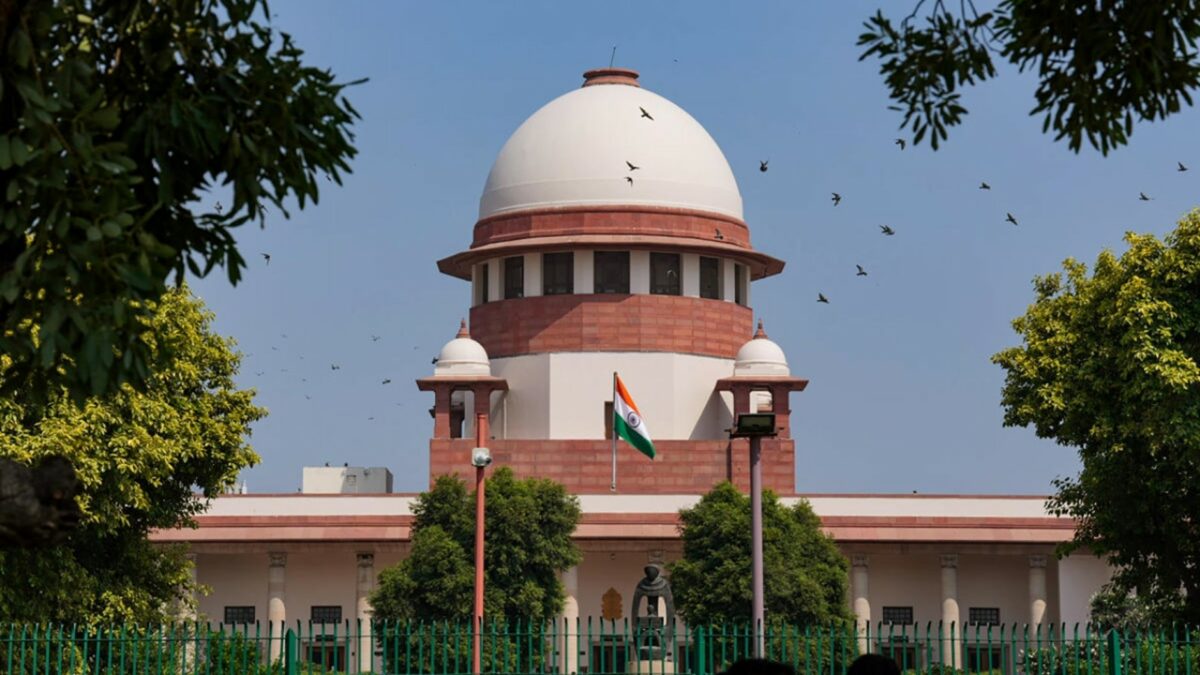
The SC on Friday, citing the Constitutional Provision which outlaw judicial interference in electoral matters stated that if the matter is covered under Article 329 then the courts are absolutely powerless to stay an election in a democratic country.
Article 329 Interdicts the Judicial Interference in the Electoral Matters:

The case came before the bench consisting of Justice Suryakant and Justice Dipankar Datta who emphasised that the Article 329 of the Constitution clearly Interdicts the Judicial Interference in the allotment of seats
Only the Results of Poll can be Challenged by Election Petitions:
The bench also stated that the results of the poll can only be challenged by way of filing the Election Petition before the Court.
Dakshin Bharat Hindi Prachar Sabha Files a petition to stall the Election:
This case is related to the election matter of Dakshin Bharat Hindi Prachar Sabha. The counsel on behalf of the Sabha is Advocate Solicitor general Tushar Mehta was question by the Bench yesterday for his arguments to stall the election.
Mehta Argued for stalling the Election in the Karnataka Division:
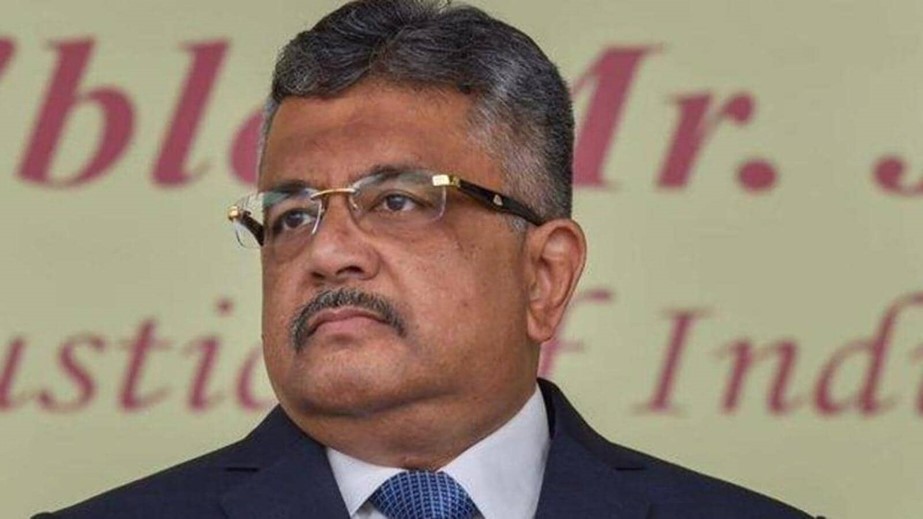
When Mehta representing the Sabha argued that the election in the Karnataka division should be stalled due to the discrepancies and unclear voter’s list and other affairs, the SC was firm in its stand that it cannot stall the election.
“In a Democracy, will you stall an election?” – the bench questions:
The Bench questioned the Advocate Solicitor General that in a democratic nation whether he will stall an election from taking place.
And added that “What to say of democracy if an election is to be stayed?”
SC cited the Judicial Precedents from 1950 to 1978 says it is absolutely Powerless to interfere in the electoral process:
The bench stated that they are absolutely powerless to stall an election if the matter falls under the domain of Article 329 and cited the judicial precedents starting from 1950’s Ponnuswami’s case to 1978’s Mohinder Singh Gill’s case and has firmly refused to stall the election.
SC adopted a Hands-off Approach and Left the Matter to the Election Commission:
It added that SC had initially adopted an Hands off Approach leaving it to the election commission to deal with the electoral process. But the principles were later modulated to hold that Courts can indeed issue directions pertaining to the furtherance of the elections.
SC Refused to Interfere with the Karnataka’s HC Order:
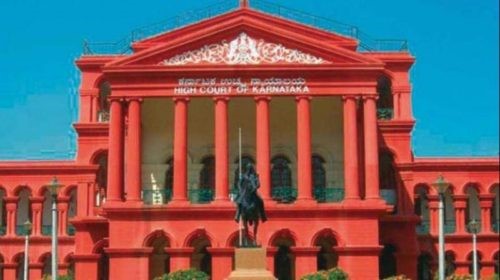
This case came before the SC as a second appeal and the Court clearly refused to interfere with the order pronounced by the Karnataka’s Division Bench which earlier pronounced it’s decision on April 21 which was in compliance with the previous order by the single bench which held that election is to be conducted to the Managing Committee and salaried employees of the Karnataka’s division at Dharwad.
We cannot contradict our own order – says SC:
The SC stated that in the month of January the Sabha came for an appeal for the same matter for which the Supreme Court clearly declined to pass an order to stall the election. Now, the Sabha came again for an second appeal and the Supreme Court stated that, “We cannot contradict our own order” to the SG on Friday.
Article 329(b) is a blanket ban on Litigation Challenges says Constitution Bench:
In the Mohinder Singh Gill’s Case the Constitution Bench cited that the Article 329(b) was a blanket ban on litigation challenges to electoral steps taken by the election commission and its officers to complete an election.
This verdict distinguished between two types of decisions. The first speaks about the progress of the election and the latter speaks about the completion of the election and acts complimenting to it.
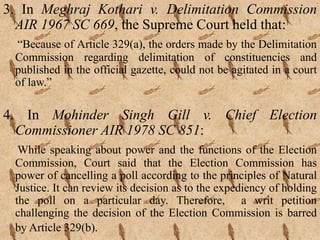
And in the Judgement written by Justice Krishna Iyer interpreted that Article 329(b) halts the Judicial Intervention when the act possesses the pre requisites of the election.
This Judicial Precedent was cited by the SC Bench on Friday and stated that Justice Krishna Iyer opened the window and Justice Krishna Iyer expanded on taking up of election petitions.







